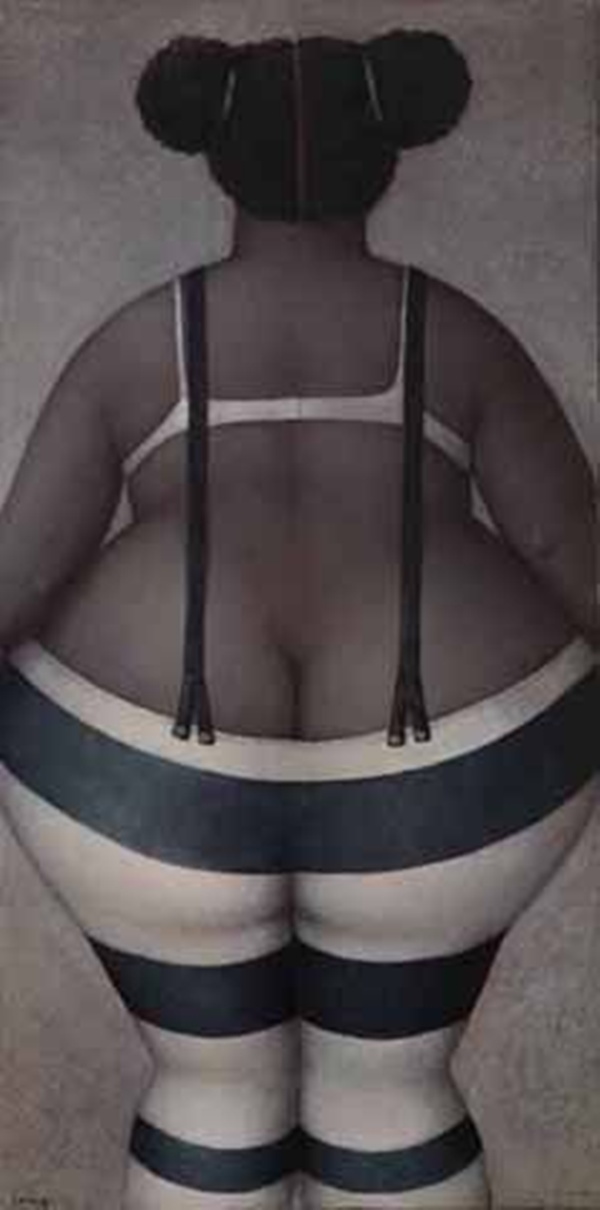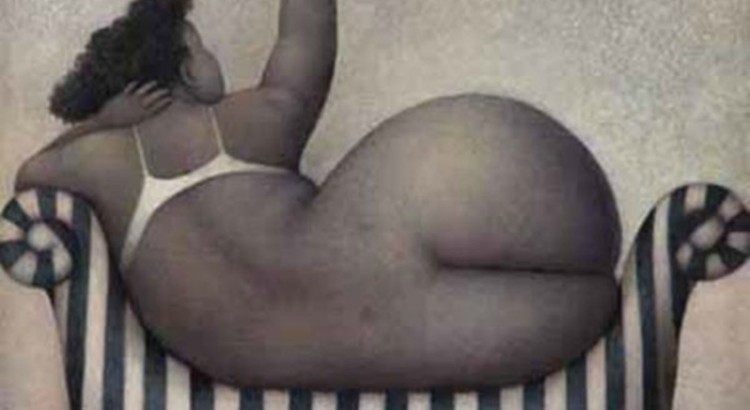The body is an elusive mistress that betrays me in my moments of deference—not just wholly for the loveliness of curving hips and a man’s defining muscles, but for my own horror of admiring, and at times even hesitantly defying, media’s perception of beauty. I am not talking about my reverence for the aforementioned curves and muscles. I am not talking of media’s bias towards the lanky, the fair-faced; a celebrity’s airbrushed features glorified in the latest edition of a magazine—no. Since I was twelve, I burdened a strange endearance for the wide and plush (not curvy) bodies bereft from media, and grew to love those types of bodies unconditionally notwithstanding the lack of confidence in my own. I’ve encountered overweight friends who have openly expressed their yearn for being thinner; I’ve listened to my peers berate over the ugliness of the human body, and above all, the horridness spawned from fat-shaming. I felt the shame in celebrities criticized for their weight gain, when my own mother did so to women walking down the street; when I helplessly found myself silently judging people for their too-skinny bodies despite my own thinness, despite my own fetishization for the heavier, the softness I oddly ached for and longed to touch.
For those five years, I kept the secret closely guarded in the comfort of my computer screen. My own agony for my secret had grown so horrifyingly horrifying, that, instead of finding the comfort in communicating to friends and guidance counselors, I had confided with a stranger online. A person I once considered a friend of mine (strictly speaking, we had never met in person, but we had chatted extensively), our relationship easily deteriorated thanks to an unhealthy amount of cyberbullying and shortly-lived harassment all account of me admitting the body type I liked. As damaging as the experience was, there was something even more horrifying in admitting it—let alone thinking—that I don’t have my preferences right. The beauty of it is wrong, media will tell me. If anything, it seemed strange that a skinny African-American girl would be interested in the plushness of a woman and man’s body, given I have the body type that is a few skin-tones shy of the aesthetically “appeasing” to media; because, shouldn’t I embrace those with the black and skinny aesthetic that matches mine, if not more if it saves me from teasing from friends and family and criticizing strangers?

My parent’s subtle sermons for loving males who shared my dark pigment, for the embrace of the male body first in itself had become an allegorical weight for my own shame in skin and in loving, in my own passion, in my hinderance for noticing the bodies I enjoyed viewing, and—in part—wanted.
What I wanted was to have a body stripped of display in magazines. Over dinner tables, I began to wonder what the shame was in fatness to begin with, and out of my own defiance to my parents and the beautiful paradigm of celebrity’s bodies, over the summer I had began to eat more. It was not that I would necessarily declare this as an eating disorder—for it had been an experiment, more or less; a recompense for those middle school years when I burdened shame and remorse for a fuller, softer state of nirvana. Those sermons of marrying a strong, respectable black male had grown into remarks of looking thicker altogether. Too much—you should eat less, honey; let the shame plant deep into the parched earth for growth.
For this, there was some alleviation and sadness in looking in the mirror. Why was there shame in it? This is the human body in its natural state. This is the plushness that would’ve been the embodiment of pureness and richness during the Renaissance Era, the sexiness that would’ve conformed perfectly with affluence and a man’s strong, rich hands. In the words of Frida Kahlo, “I am; simply I am,” and yes, there was shame still; the body is an elusive mistress in moments of deference to fill it (along with frustration, for the hair I thought I was too thick, for the skin I sometimes thought was too dark, and yes, still for shame). For this, I have learned to love these bodies unconditionally, except my own; bigger like I imagined, smaller after time, but forgone of the former idealism. For this, I once dreamed of a beautiful fat woman stripping, who wouldn’t stop not even when I asked, who wouldn’t stop until she was bearing white flesh and skin, who wouldn’t stop until I looked, and who wished for the same insideness brought with both men and women and their expanding girths, and I, a living model of Kahlo’s letter to Diego’s “I am”: tenacious, alcoholic bitch, a painter; a painter whose colors planted into the canvas had became reality that didn’t fully reach until it blossomed into a fiery Gazania, one I am still learning to touch and love.
See more art like those in the post by Jeanne Lorioz
